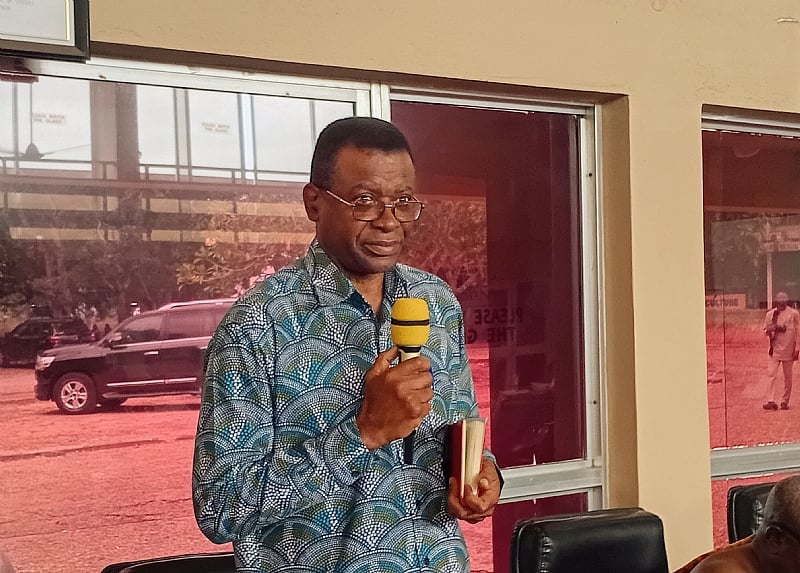Ghana’s “Responsible Cooperative Mining and Skills Development Programme”: A Multi-Faceted Approach to Combatting Illegal Mining
Ghana is embarking on a comprehensive initiative to address the pervasive issue of illegal mining, locally known as “galamsey.” The “Responsible Cooperative Mining and Skills Development Programme,” approved by the Cabinet and slated for imminent launch, represents a significant shift in strategy, moving from primarily punitive measures to a more inclusive and sustainable approach. The programme aims to formalize small-scale mining operations, providing a pathway for illegal miners to transition into licensed and regulated operators. This strategy recognizes the socio-economic factors driving illegal mining and seeks to integrate these miners into a legal framework, fostering responsible practices while providing alternative livelihoods. The initiative’s core principles revolve around community engagement, technological advancements, enhanced monitoring, and robust enforcement, all working in concert to achieve a long-term solution to this complex challenge.
A cornerstone of the programme is the establishment of modern gold processing plants within mining communities. These plants are designed to replace the rudimentary and environmentally damaging methods currently employed by illegal miners, particularly the use of mercury and cyanide. These chemicals, widely used in artisanal gold extraction, pose significant threats to human health and the environment, contaminating water bodies and soil. The new processing facilities, equipped with advanced technology, will not only eliminate the use of these hazardous substances but also significantly improve gold recovery rates. Prof. Kuma highlighted the inefficiency of traditional methods, which typically yield only 40-60% gold recovery, compared to the potential of over 90% with the new machinery. This increased efficiency offers a compelling economic incentive for miners to transition to legal operations, demonstrating that responsible mining can be more profitable than illegal practices.
The programme emphasizes community ownership and participation through the creation of mining cooperatives. These cooperatives, comprising traditional leaders, women, youth, and other local stakeholders, will manage and oversee the newly established processing plants. This approach ensures that the benefits of formalized mining, including increased income and environmental protection, directly impact the communities most affected by illegal activities. By empowering local communities to take charge of their resources and manage them responsibly, the programme fosters a sense of ownership and encourages sustainable practices. This community-led model aims to create a positive feedback loop, where the success of the cooperatives inspires others to abandon illegal mining and embrace the formalized, regulated system.
Addressing the environmental damage caused by galamsey, particularly water pollution, is a central focus of the initiative. The programme mandates that all ore processing takes place at the designated plants, where wastewater can be treated before release, preventing further contamination of rivers and other water bodies. This crucial step aims to reverse the devastating effects of illegal mining on water resources, which are vital for both human consumption and ecosystem health. The government’s commitment to environmental remediation demonstrates a recognition of the long-term consequences of unchecked illegal mining and the urgent need for sustainable practices.
Enhanced monitoring and enforcement mechanisms are integral to the programme’s success. The government will implement a comprehensive tracking system for all excavators used in mining operations. GPS devices installed on these machines will enable authorities to monitor their movements in real time, preventing their use in unauthorized areas, such as forest reserves and protected areas. A central control room at the Minerals Commission, supported by a network of agencies including the Ministry of Transport, DVLA, Ghana Revenue Authority, civil society organizations, and the Ports and Harbours Authority, will oversee this surveillance system. This collaborative approach ensures a coordinated effort to enforce regulations and deter illegal mining activities.
The “Responsible Cooperative Mining and Skills Development Programme” embodies a holistic approach to tackling the complex issue of illegal mining in Ghana. It recognizes that a purely punitive approach is insufficient and that long-term solutions require addressing the underlying socio-economic drivers of illegal activity. By offering a pathway to formalization, providing economic incentives, empowering local communities, and strengthening enforcement mechanisms, the government aims to create a sustainable mining sector that benefits both the economy and the environment. The programme’s success hinges on effective implementation, ongoing monitoring, and continuous engagement with all stakeholders. While acknowledging that the challenge will not be overcome overnight, the government expresses confidence in its multi-faceted strategy to gradually eradicate illegal mining and restore the ecological integrity of affected areas. The initiative represents a crucial step towards achieving a balance between economic development and environmental protection in Ghana’s mining sector.
The programme also acknowledges the need for skills development within the mining sector. By providing training and education on responsible mining practices, the initiative aims to equip miners with the knowledge and skills necessary to operate within a legal and environmentally sound framework. This capacity building element is crucial for the long-term sustainability of the programme, ensuring that miners are not only incentivized to operate legally but also possess the technical expertise to do so effectively. The combination of economic incentives, community engagement, technological advancements, and skills development creates a comprehensive approach to addressing the root causes of illegal mining and promoting a more responsible and sustainable mining sector. The government’s commitment to this multi-faceted strategy signifies a recognition of the complex nature of the galamsey challenge and the need for a long-term, integrated solution. While acknowledging that there is no quick fix, the initiative represents a significant step towards achieving a balance between economic development and environmental protection in Ghana’s mining sector. Through sustained effort and collaboration among stakeholders, the government aims to create a mining industry that benefits both the economy and the environment.














